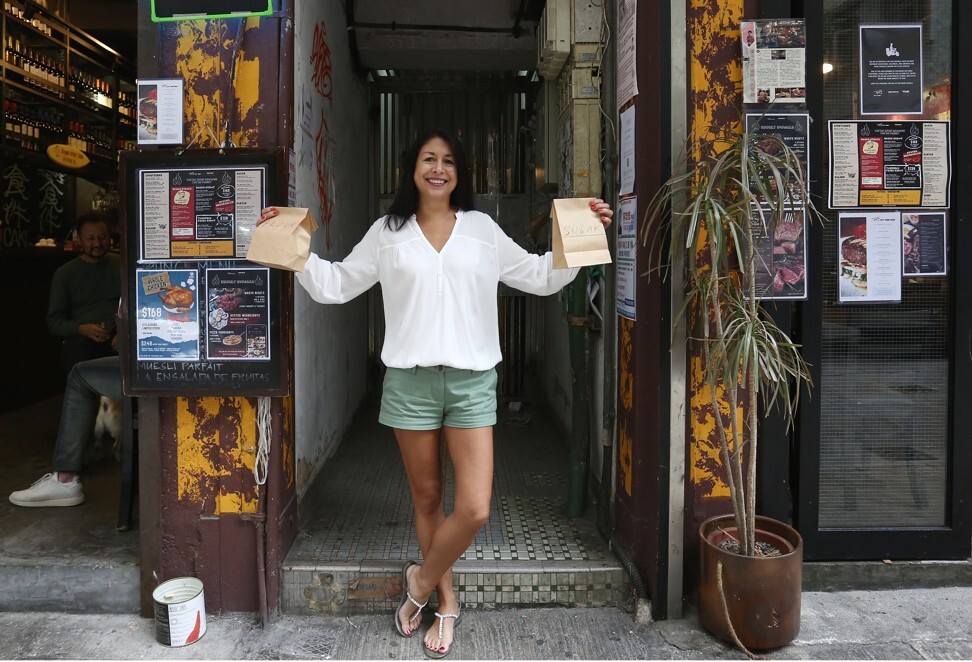
Coronavirus advice, moral support and practical help for fellow Hong Kong people raises spirits amid pandemic
- We underestimate the power of doing something together, says member of church group that’s handed out face masks, sanitiser and care packs to needy Hongkongers
- Strangers encourage one another online as they go through quarantine, restaurants pack groceries with takeaway deliveries, as city comes together in a crisis
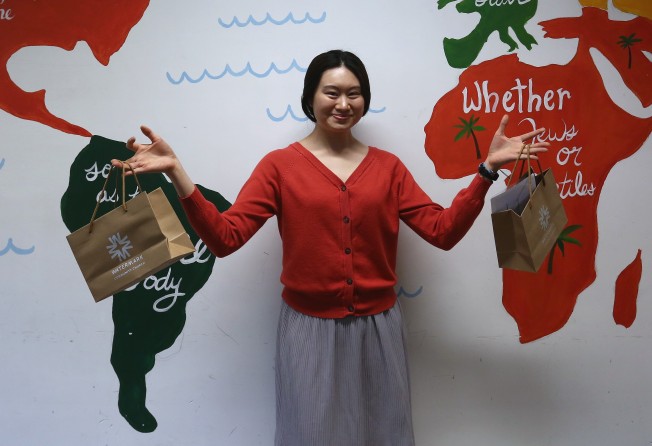
A dozen eggs or a carton of milk usually are not on the menu, but if you ask restaurateur TM Chan, she’ll gladly slip those items in with your food delivery order.
The New Zealand native, who oversees three restaurants and a bar in Hong Kong’s Sai Ying Pun district, says it’s something extra she can do to help her regular customers, with many in quarantine or practising social distancing during the coronavirus pandemic.
“For us to add anything extra is neither here nor there,” says Chan, 48, who has lived in Hong Kong for nearly three decades and owns The Den, Pete’s Place and Bingaz Street Food. “Just don’t give me a shopping list for [supermarket] City’super.”
Delivering groceries with takeaway orders, preparing care packages for residents of homes for the elderly, and supplying face masks to disadvantaged groups are just some of the ways Hongkongers are helping each other during the global pandemic.

The growth in Hong Kong’s coronavirus infection count has slowed in recent days, while the government has extended most social distancing measures to the beginning of May. Experts say restrictions, including two-week compulsory quarantine for all overseas arrivals, have helped prevent a larger outbreak in the city.
As new measures were introduced, such as on-site Covid-19 testing for arrivals from the UK and United States – two outbreak hotspots – confusion and fear over what travelling to Hong Kong would be like prompted residents to band together digitally. A Facebook group called “HK Quarantine support group” had 4,000 members as of mid-April. Each day, dozens give advice and offer moral support to one another.
Yan Yip, a human resources manager, flew from the UK to Hong Kong last week. Three days later, she wrote a nearly 2,000-word post about the hours-long arrival process. Yip says she wanted to give back to the community after receiving advice from the group’s members on how to prepare for her flight with 18-month-old twins.
“We are fearful of the unknown,” she says. “So if there is a little detail out there, sometimes it can help, or reduce stress.”
Strangers encourage one another online as they undergo their 14 days of confinement. Under one traveller’s post on her quarantine in late March, Hong Kong-based photographer Lisa Goldfarb suggested enjoying the quietness and solitude, as well as doing “meditation, yoga, push-ups for strength and sanity”.

“Sending you strength, patience, positivity and resilience,” she wrote.
Others who took more direct action – such as helping travellers waiting hours for their saliva results without being able to go to shops to buy food or water – sparked an idea for Cherry Kwan, who works with Watermark Community Church in Hong Kong Island’s Western district.
“We were just brainstorming ‘what can we do?’” says Kwan, who is in her early 30s. Initially she and other volunteers wanted to get packages to quarantine centres, but they found it difficult to make contact with those locked down inside.
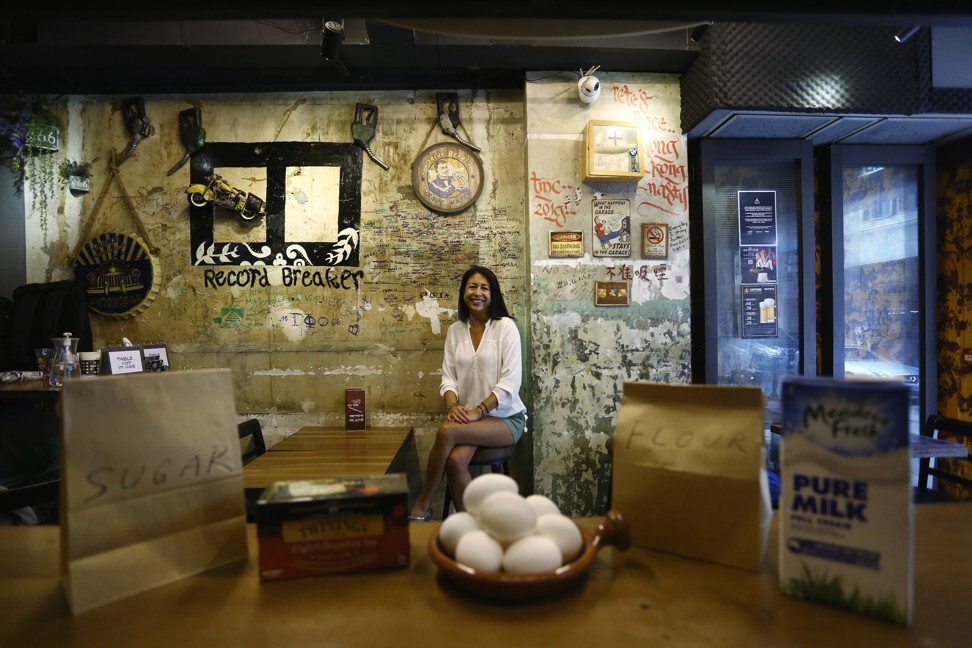
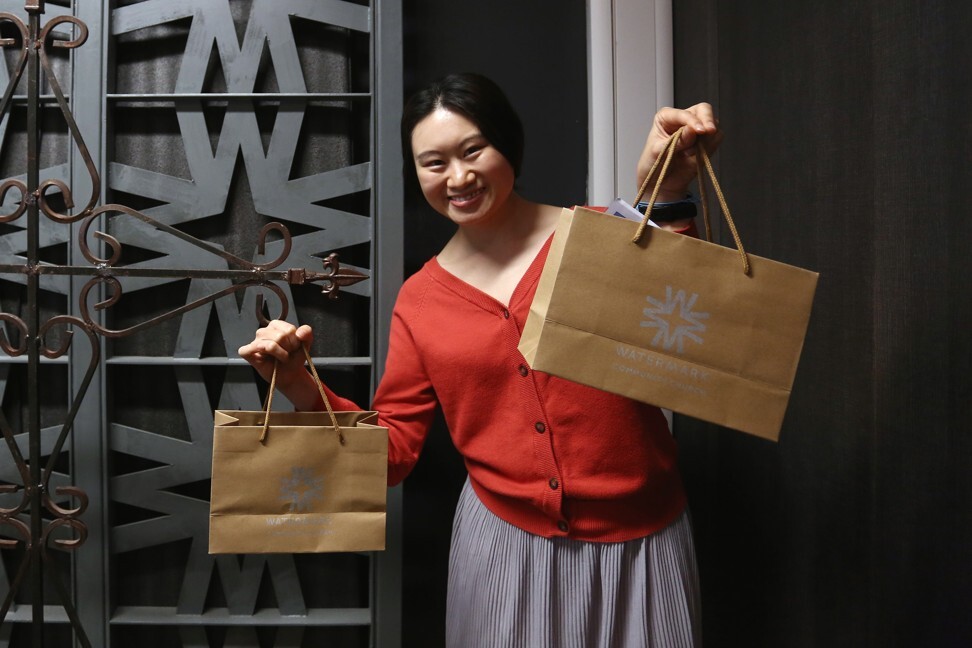
Instead, dozens of church-goers, including Kwan, prepared gift bags filled with snacks and handwritten cards, and delivered them to residents at a home for the elderly. The church has also distributed hand sanitiser and face masks to the Filipino and Nepalese communities in Hong Kong, Kwan says. They have spent around HK$70,000 (US$9,000) so far on coronavirus-relief initiatives.
“It was great fun and refreshing to do something together,” she says. “We underestimate the power of something so simple sometimes.”
Help amid the pandemic has gone to some of the most vulnerable in Hong Kong, and that includes the city’s sex workers. Sons and Daughters, a non-profit that has done outreach work in several red light districts since 2009, has continued its mission during the outbreak.
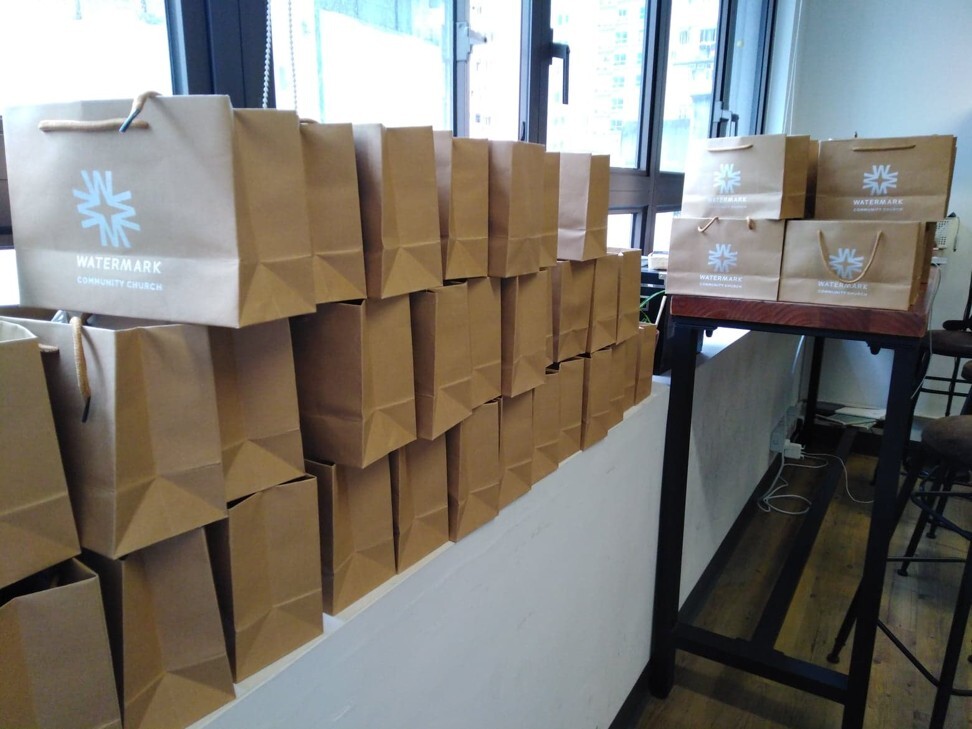
The group’s director, who asked to use only her surname, Kwan, says sex workers are some of the most at risk of contracting the virus.
A small group of volunteers heads out twice a week in the evening to distribute face masks and hand sanitiser, she says. Kwan estimates they reach more than 60 sex workers each week.
“They’re just really desperate to make ends meet,” she says, pointing out that it’s a smaller group now than before the pandemic. “Think of what they had to do to get that money.”